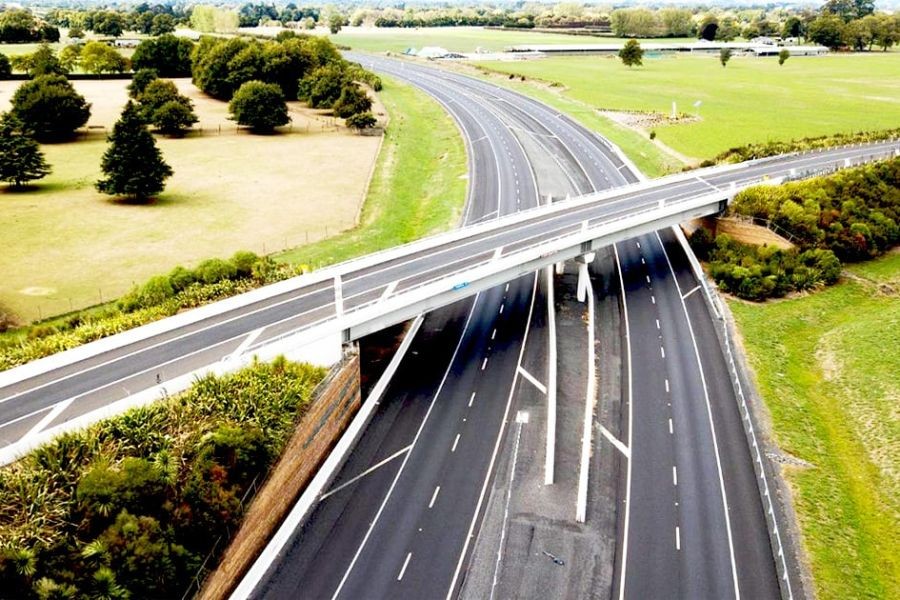New Zealand’s road infrastructure is on the brink of transformation, poised to address the challenges and opportunities of the 21st century. With evolving technologies, shifting population dynamics, and significant government investment, the nation’s transportation network is gearing up to meet future needs. This evolution is not merely about constructing new roads but reimagining how road infrastructure can support sustainable economic growth, enhance connectivity, and improve the quality of life for all Kiwis.
Understanding the Current Landscape
New Zealand's road network, spanning over 94,000 kilometers, is a crucial backbone of the country's economy, facilitating the movement of goods and people. However, the existing infrastructure faces several challenges. According to a 2022 report by the Ministry of Business, Innovation, and Employment (MBIE), traffic congestion in urban areas like Auckland cost the economy approximately NZD 1.25 billion annually. Moreover, rising maintenance costs due to aging infrastructure and increased vehicle usage necessitate innovative solutions.
The Role of Technology in Road Infrastructure
Emerging technologies are set to revolutionize New Zealand’s road infrastructure. The integration of smart technologies, such as IoT sensors and AI-driven traffic management systems, is expected to enhance traffic flow and reduce congestion. A study by the University of Auckland found that implementing smart traffic lights could reduce waiting times by 30% in metropolitan areas, improving overall efficiency and reducing emissions.
Case Study: The Auckland Smart Road Initiative
Problem: Auckland, New Zealand’s largest city, struggled with severe traffic congestion, impacting daily commutes and economic productivity.
Action: In response, Auckland Transport launched the Smart Road Initiative, deploying IoT sensors and AI-driven traffic management systems across major intersections.
Result: Within a year, traffic congestion reduced by 20%, travel times improved by 15%, and carbon emissions decreased by 10%. These results demonstrate the potential of smart technologies in reshaping urban transport.
Takeaway: Other regions in New Zealand can replicate Auckland's success by investing in smart infrastructure to enhance connectivity and reduce environmental impact.
Sustainability at the Core of Future Developments
As New Zealand strives to achieve its net-zero carbon emissions target by 2050, sustainability is at the forefront of future road infrastructure projects. The government’s NZD 12 billion infrastructure investment, announced in 2023, prioritizes eco-friendly projects, including the construction of electric vehicle (EV) charging stations and the development of cycling and pedestrian networks.
Pros vs. Cons of Sustainable Road Infrastructure
Pros:
- Environmental Benefits: Reduced carbon footprint and improved air quality.
- Economic Growth: Creation of green jobs and stimulation of local economies.
- Health Improvement: Encourages active transportation, leading to better public health outcomes.
Cons:
- High Initial Costs: Significant upfront investment is required.
- Long Payback Period: Benefits are realized over the long term, requiring patience.
- Technological Challenges: Requires advanced technology and infrastructure adaptation.
Global Trends and Their Implications for New Zealand
Globally, countries are investing in autonomous vehicles and connected infrastructure, and New Zealand is no exception. The government is exploring partnerships with tech firms to test autonomous vehicles on Kiwi roads. If successful, these vehicles could drastically improve road safety and efficiency. A report by Deloitte suggests that autonomous vehicles could reduce traffic accidents by up to 90%, a significant consideration for New Zealand, where road safety is a major concern.
Contrasting Viewpoints
Advocate Perspective: Proponents argue that autonomous vehicles will lead to safer, more efficient roadways, reducing the need for expansive infrastructure projects.
Critic Perspective: Skeptics point to the potential for job losses in driving professions and the ethical dilemmas posed by AI decision-making.
Middle Ground: A balanced approach that includes job retraining programs and ethical AI guidelines can help mitigate these concerns while reaping the benefits of autonomous technology.
Challenges and Opportunities
One of the significant challenges facing New Zealand’s road infrastructure evolution is funding. The government must balance infrastructure investments with other critical areas like healthcare and education. However, public-private partnerships (PPPs) present a viable solution, offering a way to leverage private investment for public projects.
Common Myths and Mistakes
- Myth: "Expanding roads always reduces congestion." Reality: Studies show that new roads can lead to induced demand, eventually worsening congestion.
- Myth: "Sustainability is too costly." Reality: While initial costs are high, sustainable infrastructure reduces long-term maintenance expenses and environmental impact.
- Myth: "Autonomous vehicles are a distant future." Reality: These vehicles are already being tested globally, with significant advancements expected within the next decade.
Future Trends and Predictions
Looking ahead, the future of New Zealand’s road infrastructure will be shaped by several key trends:
- Increased Adoption of Electric Vehicles: By 2030, it is expected that EVs will make up over 40% of all vehicles on New Zealand roads (MBIE).
- Integration of Renewable Energy: More highways will be equipped with solar panels, reducing dependence on non-renewable energy sources.
- Expansion of Smart Cities: Urban areas will increasingly adopt smart technologies to improve traffic management and sustainability.
Conclusion
The evolution of New Zealand's road infrastructure is not just a necessity but an opportunity to lead the way in sustainable and smart transport solutions. By embracing technology, fostering public-private partnerships, and prioritizing sustainability, New Zealand is well-positioned to create a more connected and resilient transport network. As these changes unfold, stakeholders must remain adaptable, innovative, and committed to long-term goals.
What’s your take on New Zealand’s road infrastructure evolution? Share your insights below and join the conversation!
People Also Ask
- How will New Zealand’s road infrastructure impact businesses? New Zealand businesses will benefit from improved connectivity and reduced transportation costs, enhancing productivity and competitiveness.
- What are the biggest misconceptions about road infrastructure? A common myth is that more roads always reduce congestion, but research shows this can lead to induced demand and increased traffic.
Related Search Queries
- Future of road infrastructure in New Zealand
- Sustainable transport solutions in NZ
- Impact of autonomous vehicles on Kiwi roads
- Public-private partnerships in NZ infrastructure
- Smart city initiatives in New Zealand































